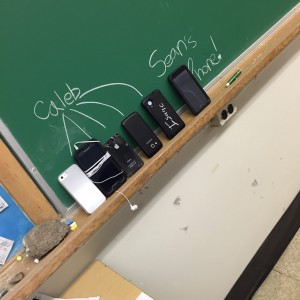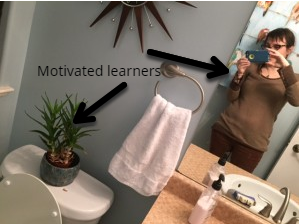In Shulman’s “Knowledge and Teaching: Foundations of New Reform” (1987), he provides readers with an analogy that implies that our subject matter is a vehicle that will “service other goals” (p. 7). He continues to assert that at the secondary level, “subject matter is a nearly universal vehicle for instruction” (p.7). Near the end of his paper, he provides us with the example of the talented English teacher with two degrees, who lacked grammatical confidence. When teaching topics that were not in her wheelhouse, she transformed into a “didactic” pedagogue, lacking confidence and displaying anxiety.
I would be lying if I never felt like a didactic pedagogue, early on in my career! When I started out, I taught a lot of Junior Science, which meant teaching Biology and Chemistry, two subjects that I did not have beyond a first year level of instruction. The lack of knowledge base, shook me to my core; I am certain that my lack of confidence was obvious to my students, as well. In time, I grew more comfortable with the material, but never above the level that I was teaching. Thankfully, in the last twelve years, I have solely been teaching Mathematics and Physics, but being thrown a junior science is a possibility, every year. <insert wheezing sounds>

Courtesy Joost J. Bakker from IJmuiden, Flickr
What I have learned in my time at the wheel, is that it is OK to not know everything, but it is important to know enough. And without question, it sure helps to have a solid grasp of at least one year above what you are teaching. Preparing students for their next course is very difficult, when you personally do not understand the material in the next level up! So to answer my question, these days, I feel like I am driving a pretty solid BMW, although stick me with Junior Science and hello 1977 Ford Pinto.
***
One strategy that I have only recently used, is to teach/review algebra with my FPC Math 10 (academic math) class, having the students sit in pairs of their choosing. Each pair has a table top whiteboard (London Drugs sometimes clears them out…), marker and eraser. I review the basic “moves” and reinforce opposite operations and remind them that the order of the “moves” is important (“Reverse BEDMAS”, usually helps them remember). Then, we do a series of increasingly difficult algebraic problems, WITHOUT variables. For example, rearrange “2 + 3= 5” for 3. My approach is to reinforce that “if it works on the numbers, it will work on the letters.” The students work in pairs and flash me their answers. When students are struggling, I send other students to help, that have already shown me their work. The goal is to increase student interactions— Vygotskian social learning! During which time, I am discussing proper notation (where to put the = sign, working vertically, using fraction bars for division, etc.). What I am finding is that is is a huge confidence boost for my low folks, because they can find their own mistakes (clearly, 3 doesn’t equal 5/2, for example). When we leap into the variables, I can then attach the more abstract algebra to the concrete algebra. Practically right away, we can then start throwing our symbols across the equal sign, completing multiple steps simultaneously.
I chose this as my example because it exemplifies how important it is to have a knowledge base beyond your subject material. Being a physics teacher, I know how important it is to be comfortable with symbolic manipulation. My colleagues without the physics, tend to not prioritize symbolic manipulation prior to substitution. What they don’t seem to understand, is that it is far more efficient to rearrange before substituting and it is critical to do so from Physics 12 onward.
***
Shulman, L.S. (1987). Knowledge and teaching. The foundations of a new reform. Harvard Educational Review, 57(1)1-23.



